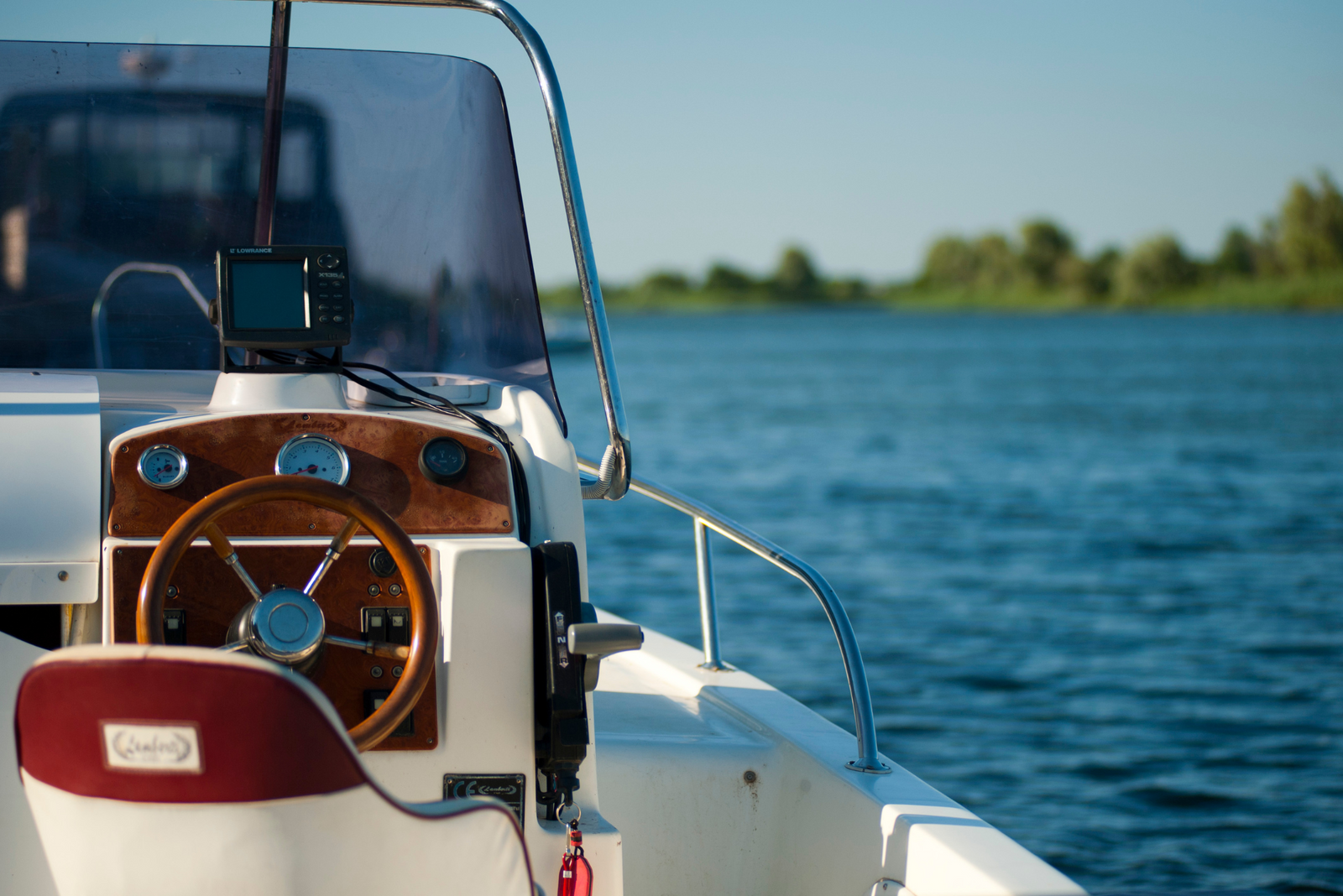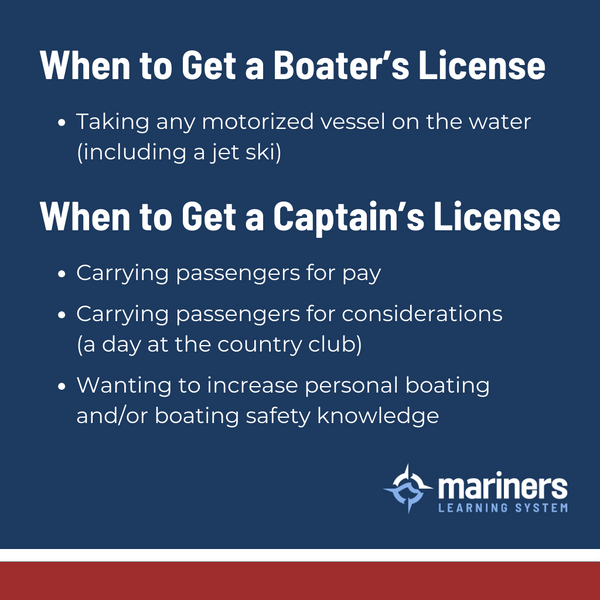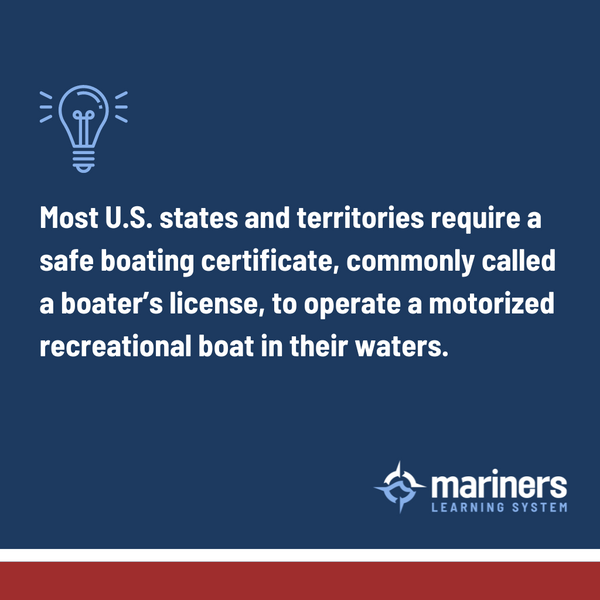Free Shipping On Orders $50+
Free Shipping On Orders $50+

Can You Drive a Boat Without a License? Here’s the Answer…
by Bob Figular May 07, 2024
If you’ve just purchased a shiny new boat, you’re probably eager to get out on the water. But for many, an important question remains: Can you drive a boat without a license?
The short answer is no, you can’t drive a boat without a license. But what kind of license you’ll need depends on what you’re planning to do.
Boater’s License vs. Captain’s License
What type of license do you need to take your boat out, and how do you know which one to get?
If you haven’t heard of them before, “boater’s license” and “captain’s license” may sound interchangeable. However, there are significant differences between the two, both in how to obtain them and how they apply.
Boater’s License
Most U.S. states and territories require a safe boating certificate, commonly called a boater’s license, to operate a motorized recreational boat in their waters. (For a quick overview of each state’s rules, you can reference the U.S. Coast Guard’s helpful rundown of boating education requirements.)
The license isn’t some ploy by states to get boaters’ money; it’s an important step toward ensuring safety on their waterways.
Each boating safety course covers the basics of safe boating in the issuing state, so you’ll receive a foundation for safe boating in general as well as information for safe boating on your state’s particular waterways. Other requirements, such as minimum age and minimum course length, vary by state as well. For example, you need 8 hours of instruction in New Jersey, but only 3 in Texas.
As a general rule, you need a boater’s license to drive any motorized, recreational boat — everything from a bass boat to a jet ski. There are always exceptions, of course, so check your state regulations for details. For example, if you’re sailing without a motor on board, you may not need to complete the course.
Important Note: While a safe boating course is a good first step toward improving safety for everyone on the water, having a boater’s license doesn’t automatically transform you into a seasoned mariner. The truth is, you can take and pass a safe boating course without ever going out on the water. The certificate merely means you’ve received the minimum classroom/online instruction set forth by the state.
For many, this isn’t quite enough to satisfy either their interest in boating or their concern for safety. Boaters who want to take their experience to the next level often pursue the next step in licensing: a captain’s license.
Captain’s License
While you need a boater’s license to drive a recreational boat, a captain’s license is required to operate a boat for commercial purposes. This includes activities like taking paying passengers out for fishing excursions, dinner cruises, and eco-tours, but it also includes taking your buddies out in exchange for a day of golfing at their country club.
Since, as a captain, you’re responsible for the lives of the paying passengers on your boat, the captain’s licensing process is much more rigorous. Besides a background check, more in-depth instruction, and a physical, you’ll need a minimum of 360 days (4+ hours) of experience on the water, which takes most people between three and five years to acquire.
While a boater’s license is good in the state where it’s issued (and in any state with education reciprocity), captain’s licenses are issued at the federal level by the U.S. Coast Guard, making them valid across the country.

Who Can’t Get a License?
As far as boating licenses go, not much will prevent you from getting one if you really want to. Be sure to check your state’s requirements and take a boating safety course that meets their standard.
Captain’s licenses do have a number of potential disqualifiers, though they’re not too much of a burden. Here are a few of the most common:
- Falsifying or leaving out information on your application
- Pattern of drug violations or DUI
- Physical issues that could endanger passengers, such as a heart condition or sleep apnea
- Medical marijuana (still illegal at the federal level)
- Prescription medications that could impair your ability to captain a boat (opioids, stimulants, etc.)
The main purpose of the Coast Guard’s rules and guidelines is safety. So, even if you have a medical condition or prescription that you think might disqualify you, it’s worth investigating further. The USCG can work with your doctor to evaluate your individual case and determine the safest course.
What Happens If You Drive a Boat Without a License?
Recreational
Operating a boat recreationally without a boater’s license can lead to tickets and fines — never a pleasant experience. However, an even more serious concern is liability. If you’re involved in an incident while boating without a license, you can face more serious legal repercussions.
Commercial
The consequences of driving a recreational boat without a license are bad enough, but it’s much worse for commercial operations.
The fine for operating a commercial vessel without a license is $10,000 — for each infraction. So if the Coast Guard can show you took paying passengers out for 10 trips, that’s not a $10,000 fine; it’s a $100,000 fine.
Worse, you encounter major legal ramifications for driving a commercial boat without a license. You can be sued by anyone affected, and you can even end up with jail time.

When Should You Consider Getting a License?
In general, you should get a boater’s license if you plan on going out on any boat, even a rental (including jet skis, even though some rental companies don’t require a license).
If you’re interested in profiting from a commercial boating business, then you’ll need to get a captain’s license. You can also pursue a captain’s license in the interest of deepening your knowledge of boating and boat safety.
Investing the time and effort into obtaining the necessary certifications not only ensures legal compliance but also promotes safety for yourself and others on the water. So don’t get caught driving a boat without a license; make sure you’re properly equipped with the knowledge and credentials to navigate the waters responsibly.
Start Working Toward Your Captain’s License Today
If you’re interested in pursuing a captain’s license, check out the courses and informative videos on our website. We built our system from the ground up, focusing on the crucial, practical information boaters need to absorb both to pass the test and to become top-notch captains.
Leave a Comment
Comments will be approved before showing up.
